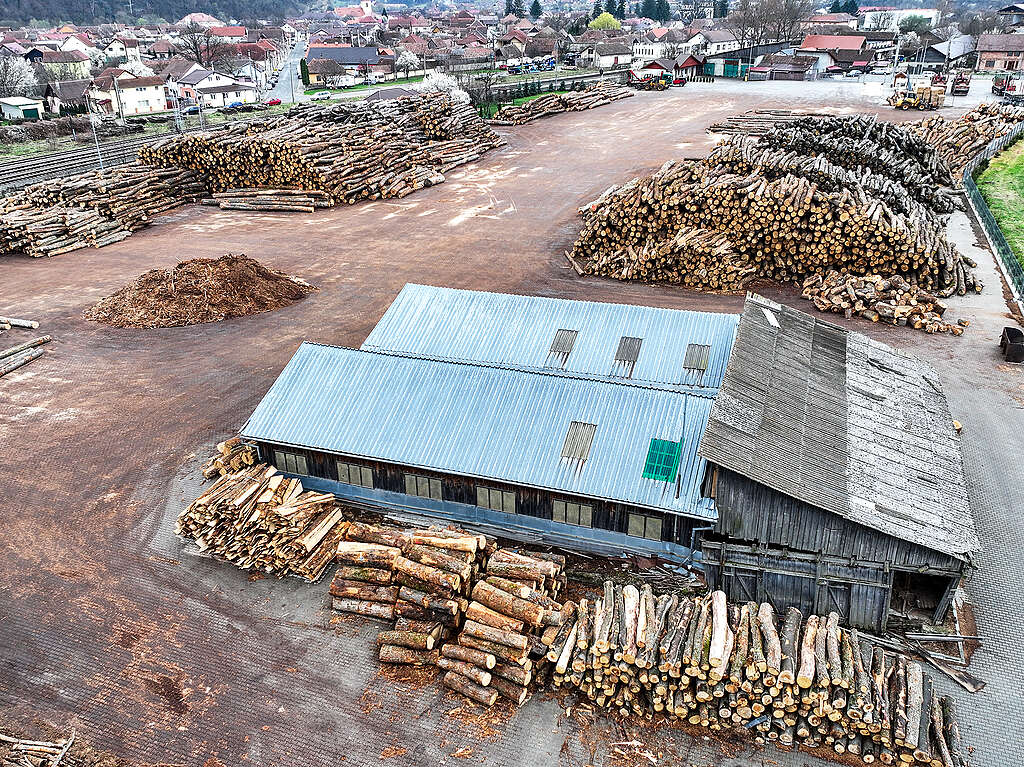Furniture manufacturers producing for IKEA are sourcing wood from some of Europe’s last remaining old-growth forests in the Romanian Carpathians, including in Natura 2000 protected areas, new report finds.

A Greenpeace investigation published today reveals that seven manufacturers producing IKEA’s all-time favourite products, like INGOLF chairs or SNIGLAR baby cribs and beds for children, are linked to the destruction of high-conservation value forests. At least 30 different products from these suppliers were found in IKEA stores in 13 countries: Austria, Belgium, Czechia, Finland, France, Germany, Hungary, Italy, Israel, Poland, Sweden, Switzerland, and the UK. Greenpeace calls on IKEA to become part of the solution instead of contributing to the ongoing climate and biodiversity crises.
Robert Cyglicki, Biodiversity Campaign Director at Greenpeace Central and Eastern Europe, said: “Our nature heritage must not be turned into hangers or pieces of furniture. Old forests are vital to the planet’s health and must be immediately protected. IKEA must live up to its own sustainability promises and clean up its supply chain from old-growth forest destruction.”
Erika Bjureby, Programme manager, Greenpeace Sweden, said: “IKEA cannot ignore the seriousness of this. They want to appear sustainable, but in reality, they contribute to the destruction of old-growth forests that should absolutely not be touched. It is obvious that IKEA must take greater responsibility for its supply chains and live up to its own sustainability promises. This is unfortunately not the first time IKEA is linked to this kind of scandals.”
The Report “Assemble the truth: Old-growth forest destruction in the Romanian Carpathians” was researched and written by Greenpeace Central and Eastern Europe. Investigation teams followed the supply chain from analysing permits and satellite imagery of logging sites in the forests in Romania to wood depots and furniture manufacturers, to where those products end up: on the shelves of IKEA stores. Several manufacturers were found to be sourcing wood from high conservation value forests. Based on publicly available information, IKEA is the biggest customer of products manufactured by most of those companies, implying a high likelihood that the problematic wood is ending up in IKEA furniture. According to the report, this appears certain in the case of one manufacturer, Plimob, as Plimob produces virtually exclusively for IKEA.
Greenpeace CEE gave IKEA the opportunity to comment on the findings of this investigation. IKEA didn’t dispute the information.
Greenpeace recognises that furniture in general is a good way of using wood, storing carbon and adding value to raw materials, but this must not happen while sacrificing the planet’s most biologically diverse forests. The Carpathians are home to brown bears, lynx and wolves and the European bison and are among the most important flora and fauna refuges on the European continent. The problem is that companies and authorities want to avoid identifying areas as primary or old-growth forests to avoid restrictions, leading to the fact that only just 2.4% (1700 km²) of the Romanian Carpathian forests are currently protected against logging. At the same time, official data suggests that around 7% of the Romanian forests are over 120 years old. According to the EU’s Biodiversity strategy, these forests should be strictly protected.
Erika Bjureby, Programme manager, Greenpeace Sweden, said: “Greenpeace is not fundamentally against using wood in furniture production, as long as it goes towards durable products and does not happen at the expense of some of the planet’s most valuable forests. I don’t think IKEA’s customers find it as charming to assemble chairs and cribs at home if they are aware of the real price of the furniture. IKEA probably realizes this as well, so we urge them to be part of the solution instead of the problem before our last valuable forests are destroyed.”
Robert Cyglicki, Biodiversity Campaign Director at Greenpeace Central and Eastern Europe, said: “IKEA must become a corporate frontrunner for the needed political action to put in place legally binding and effective biodiversity protection measures to fulfil Europe’s biodiversity targets.”
Greenpeace Sweden will demonstrate outside IKEA’s store at Kungens Kurva during the day, between approximately 09:30-13:30. Greenpeace Germany and Greenpeace Czech Republic are also organizing their own demonstrations during the day.
ENDS
Photos and Videos can be accessed from the Greenpeace Media Library.
Photo and video material from today’s demonstration in Sweden will be posted here
